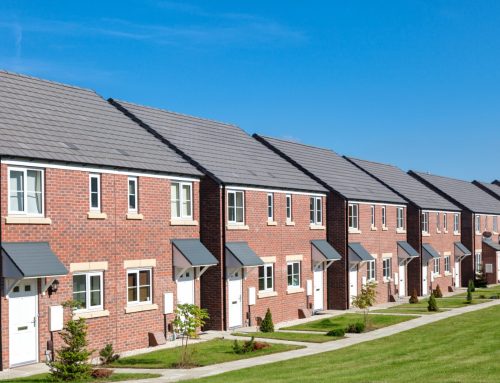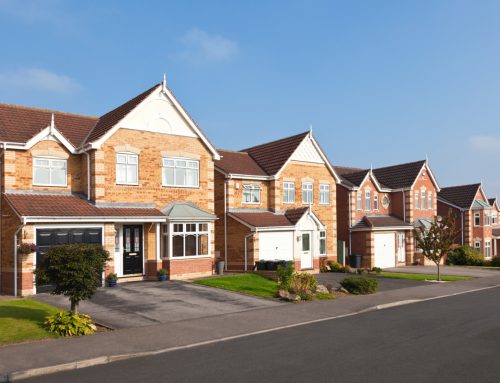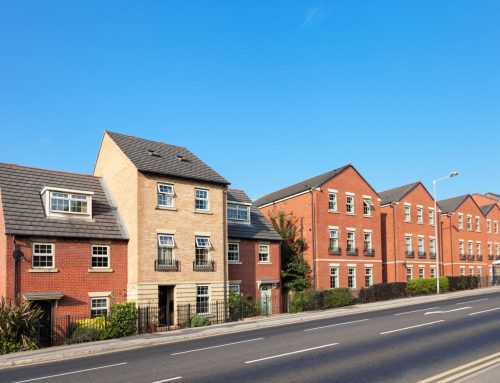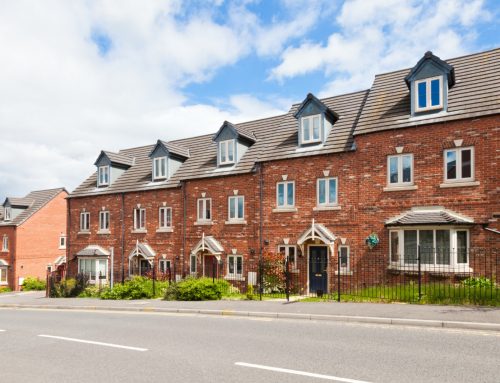What Impact Will the Interest Rate Rise Have On The Property Market?
The Bank of England has announced an interest rate rise last week. What Impact Will the Interest Rate Rise Have On The Market? The rise of 0.25% in Bank of England base rate to 0.5% may be small, but it marks the first rise in borrowing costs for a decade. Many mortgages will rise in cost, albeit by a small margin, but savers will be looking forwards to better returns. Fixed rate mortgages will not be affected. However, standard variable rate mortgages will face costs rise, albeit by a very small amount. The rise in the Bank of England Base rate will noly have a modest effect on most UK households, according to mortgage lender Nationwide. Because more homeowners are on fixed mortgages, the rate change, will have a smaller effect than rate rises previous. It comes as house prices rose by 0.2% in October, according to Nationwide.
Average House Prices
The average price of a house in the UK rose by £284 to £211,085. Annual house price growth edged up to 2.5% from 2.3% in September. Howard Archer, chief economic adviser to the EY Item Club consultancy, said a rate rise could weigh on the housing market. “Housing market activity remains under pressure from squeezed consumer purchasing power; fragile confidence and appreciable caution over engaging in major transactions,” he said. Brexit impact
What Impact Will the Interest Rate Rise Have On The Property Market
Moody’s economist Colin Ellis said: “We haven’t seen quite the negative impact from the Brexit referendum that some had forecast, but then we weren’t as bearish as the OECD [Organisation for Economic Cooperation and Development] or the NIESR [National Institute of Economic and Social Research]. “The [property] market is holding up OK. There is an underlying resilience in prices even if transaction activity has been affected. If you look at the balance between the cost of renting or buying, then UK house prices are not overexposed. “Shocks are being dealt with, and even in the event of a Brexit no-deal, then it’s not looking like the UK economy falling off a sharp cliff.” On Thursday the Bank of England raise interest rates for the first time in 10 years from 0.25% to 0.5%. But Moody’s said it was relaxed about the impact on households and their ability to continue paying mortgages. “We have expected a rate rise for some time. This is about taking away emergency stimulus introduced after the referendum vote. A rise of 25 basis points [0.25%] is not going to move the dial. A rise of 0.25% pales into insignificance compared to the 8%-10% decline in the currency.” Russell Quirk of eMoov said: “Any increase in monthly payments, like interest rates themselves, will be marginal and manageable for those impacted. On the typical £150,000 loan, homeowners will be out of pocket around £15 to £30 a month, certainly no grounds to shout ‘financial meltdown’. “House price growth and the market’s overall stability have been incredibly resilient despite the EU vote and a snap general election. A few quid added to the average mortgage repayment will not deter this growth in the medium to long term.”
How much will my mortgage go up?
By about £22 a month, if you are the average home buyer with the typical mortgage in Britain of £175,000. The 500,000 borrowers on one of the most popular deals, Nationwide’s base mortgage rate tracker, will see their interest rise from 2.25% to 2.5%; taking the monthly bill from £763 to £785 on a £175,000 loan. Robert Gardner of Nationwide estimated such a rate rise would increase monthly payments by £15 to £665 for the average mortgage, or an extra £180 a year.
Will interest rates continue to go up?
The consensus amongst the anylists and commentators is that there will be at least another 0.25% rate rise next year, and possibly a second. That will take Bank of England base rate to 1%. In the longer term there is talk of the Bank of England “normalising” rates after the most abnormal decade in its history. But few mainstream economists expect the “new normal” to be much above 3%. Population growth has fuelled housing demand in recent years, the building society said, with international migration accounting for almost two-thirds of the 11% increase in England’s population rise between 2001 and 2015. That has affected the number of residents privately renting properties. “Recent migrants are more likely to privately rent than live in social housing or their own home,” said Mr Gardner. The biggest impact has been in London. “There is a regional dynamic, with migrants accounting for a much higher proportion of the private renting population in London than elsewhere in England,” he said.








